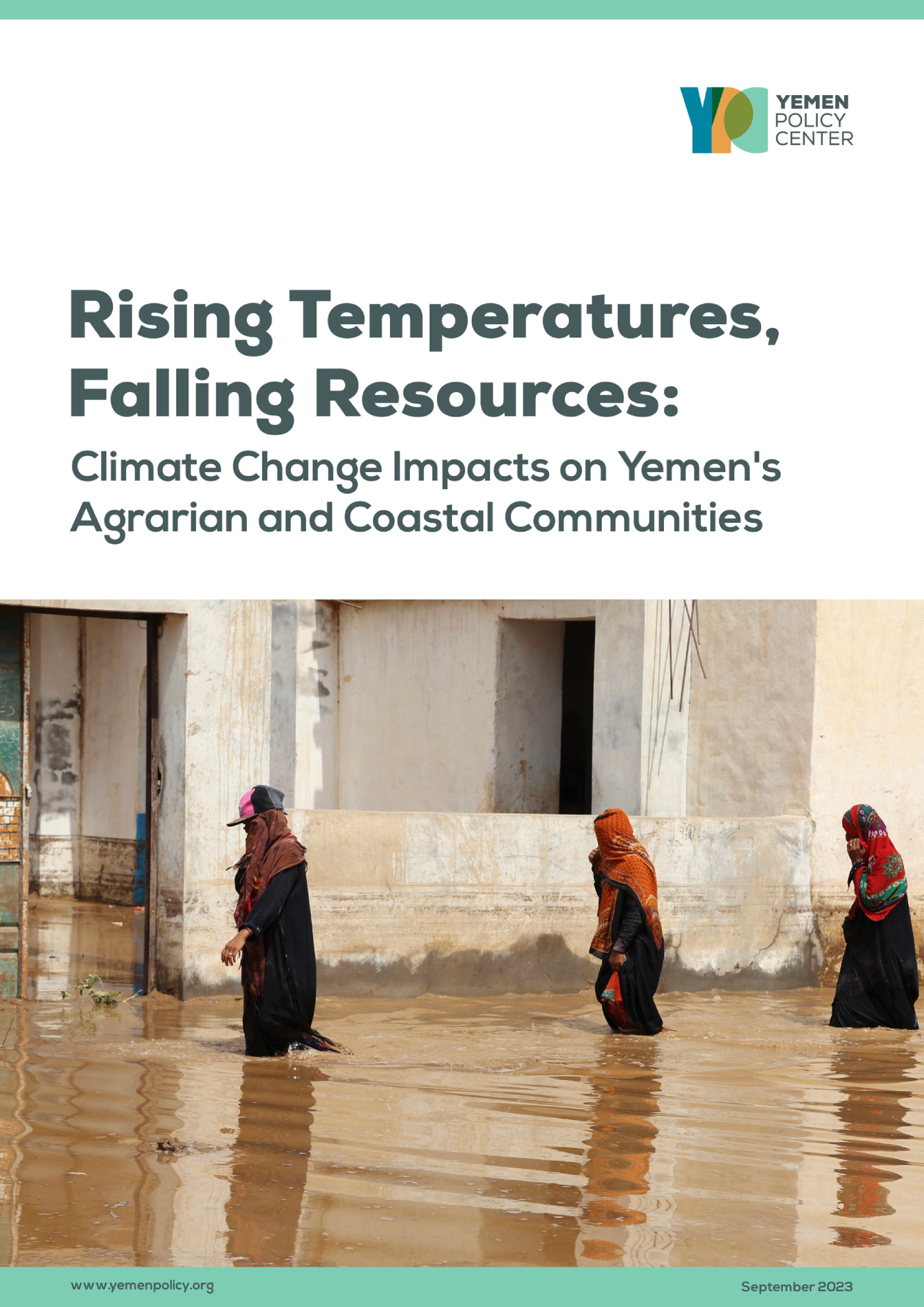As the world continues to grapple with the effects of climate change, Yemen finds itself in a particularly vulnerable situation. The country is already facing several challenges, including an internationalized civil war and severe economic crisis. Climate change is likely to further exacerbate existing problems, with extreme weather events such as flash floods and droughts, as well as rising sea levels, already occurring in some parts of the country. This report focuses on two districts in Yemen which have been particularly affected by climate change and are likely to suffer further consequences in the future: Hajar district, Hadhramaut, and Tawahi district, Aden. Through a series of in-depth interviews and dialogues with local stakeholders, this report seeks to identify the direct and indirect impacts of climate change in the districts, as well as to highlight potential solutions and strategies for mitigation and adaptation.
Negative effects in the research districts include reduced water availability and quality, decreased crop yields and fish catch, and an increase in vector-borne diseases, food insecurity and unemployment. Furthermore, these effects are likely to worsen over time as the impacts of climate change become more pronounced, multiplied by a host of other factors such as poverty, conflict, and disintegration of environmental governance structures.
“Rising Temperatures, Falling Resources: Climate Change Impacts on Yemen’s Agrarian and Coastal Communities” by Hadil Al-Mowafak

At the same time, despite the fact that establishing a strong link between climate change and armed conflict has been a contentious issue among scholars and policymakers for many years, the conversation has been shifting to focus on how climate change can act as a ‘threat multiplier’, exacerbating pre-existing tensions and making societies more vulnerable to conflict.
In agrarian Hajar, flash floods and landslides have been a major concern, leading to the destruction of water infrastructure, farmlands, and properties. Changing weather patterns such as rising temperatures have also impacted the health and productivity of crops and livestock, with a consequent decrease in food availability and quality. For example, floods in 2020 and 2021 led to the destruction of thousands of palm trees, reducing date production by more than 60 per cent – directly impacting the local livelihoods of people who rely heavily on agriculture and livestock herding for income. With high levels of poverty among locals, the climate-related losses are further compounded by an inability to cope and adapt as well as weak and slow government and international responses. As a result of this lack of robust resilience structures, outward migration of farmers to other parts of Yemen has become frequent.
Coastal Tawahi is experiencing a different set of climate-related challenges, driven by rising sea levels, increased salinity of drinking water, and the degradation of marine ecosystems due to the destruction of coral reefs as well as coastal erosion. The local fishing industry, one of the main sources of income for coastal communities, has been severely affected by changing climate, with a reported decrease in fish catches and subsequent rise in seafood prices. Moreover, increased instances of flash floods have caused the destruction of infrastructure and properties and further displacement of local populations. Given its urban setting, Tawahi also faces increasing pressure of rapid population growth coupled with inadequate sanitation and waste management systems. Residents of unplanned houses on the mountain slopes are particularly vulnerable to water shortages and are more exposed to vector-borne diseases such as dengue fever and malaria, due to the pools of stagnant water commonly found in their areas
Based on these findings, this report provides a series of policy recommendations that can better equip local stakeholders in both districts with the necessary tools to cope and adapt to the changing climate.
‘Rising Temperatures, Falling Resources: Climate Change Impacts on Yemen’s Agrarian and Coastal Communities’ was written by Hadil Al-Mowafak, YPC Research Fellow. Yemen Polling Center field researchers contributed to the research conducted for the study.
The author would like to thank Mareike Transfeld, for her invaluable guidance in conceptualizing ideas and review of the report, Jatinder Padda for copyediting the report, and Ahmed Al-Shargabi for sharing his insights and providing logistical support.
The Local Climate Dialogues project was funded by the Robert Bosch foundation.